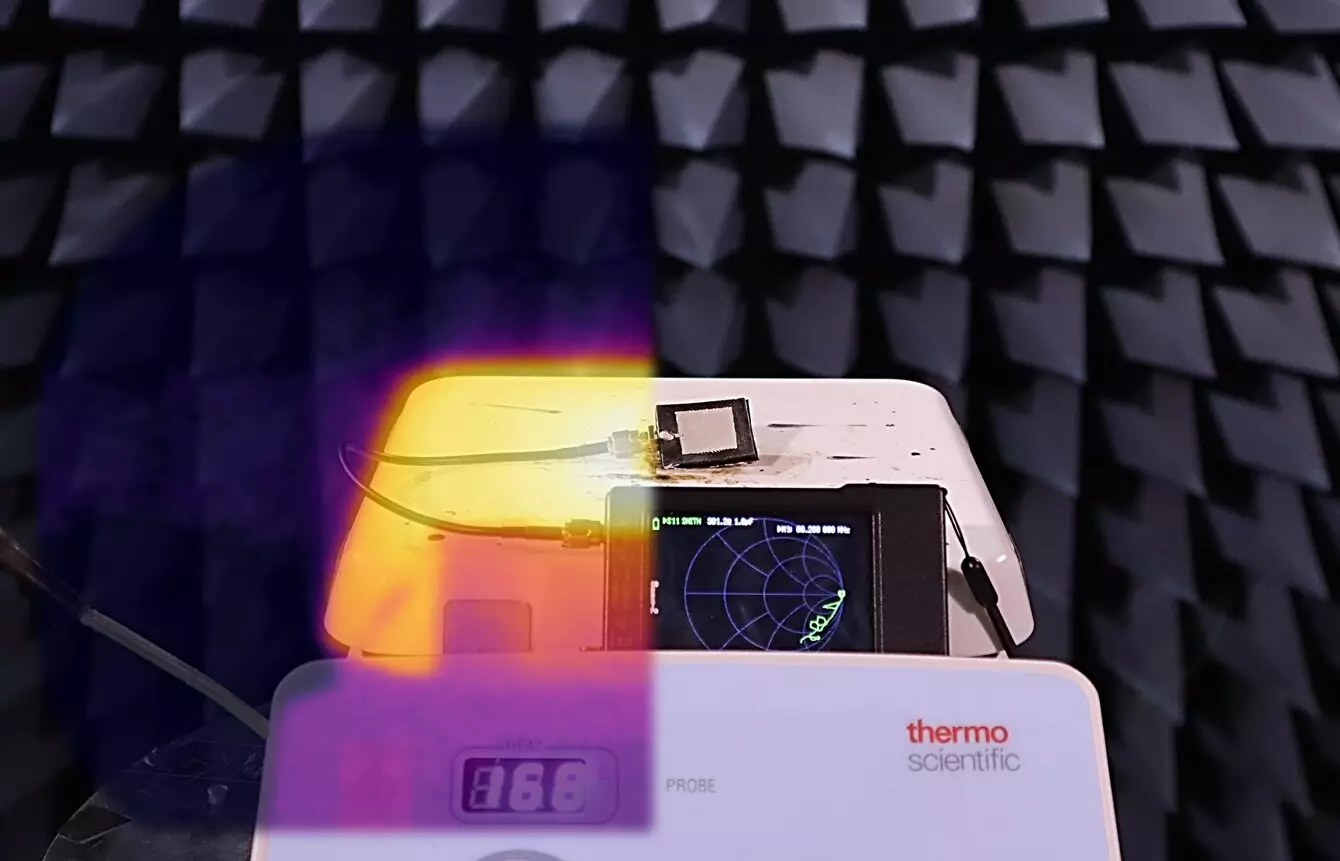The field of temperature sensing is set to witness a major transformation with the development of a groundbreaking new method. A team of engineers from prominent UK universities has pioneered a unique approach to measure temperature utilizing a soft and flexible sensor known as a “smart skin.” Unlike traditional temperature sensors, this innovative device does not require battery power or onboard processing, marking a significant breakthrough in the field of temperature measurement. The team’s groundbreaking research, titled “Wide-range soft anisotropic thermistor with a direct wireless radio frequency interface,” has been published in Nature Communications.
Unlike its conventional counterparts, the flexible sensor designed by the team operates by interacting with electromagnetic waves. Constructed using a composite of carbon fibers and silicon rubber, this cutting-edge sensor has the ability to absorb and reflect radio-frequency (RF) signals in response to atmospheric heat or cold. Consequently, it can measure temperature across an exceptionally wide range, surpassing the capabilities of other devices in the market. Additionally, this groundbreaking sensor retains its sensitivity to temperature even after thousands of cycles of bending and stretching. These remarkable qualities make the soft skin sensor a game-changer in the field of temperature measurement.
The global market for temperature sensors is projected to reach an estimated value of $5-8 billion. This widespread demand is primarily driven by the integration of temperature sensors in a wide array of electronic devices. However, conventional temperature sensors, known as thermistors, possess a limited capacity to measure temperature variations. As a result, temperature sensors often rely on an intricate array of different thermistors to cover a broad sensing range. The soft, flexible temperature sensor developed by the University of Glasgow research team defies these limitations, as it can accurately measure temperatures ranging from an impressive 30°C to over 200°C. The introduction of this groundbreaking technology has the potential to revolutionize the landscape of wireless sensors. By eliminating the need for multiple devices, it can significantly reduce costs and enhance sustainability.
The researchers employed cutting-edge 3D printing technology to transform the soft material into components such as antennas, RFID labels, and resonators. Furthermore, they successfully tested the sensor’s ability to absorb RF radiation at varying temperatures, even up to a staggering 300°C. Driven by a vision to bridge the analog and digital worlds, the team developed a remarkably simple composite material using common silicone and carbon fibers. The resulting skin-like substrates can be molded into any shape, allowing for the design of antennas over large areas that radiate signals highly sensitive to temperature variations. This novel approach surpasses previous attempts to exploit RF and microwave devices for temperature and humidity measurements, marking a groundbreaking achievement in sensitivity.
Researchers from the University of Southampton played a key role in supporting the development of the flexible and stretchable sensor material. This material has the potential to be seamlessly integrated into bendable electronics and smart fabrics, unlocking a myriad of possibilities for applications in diverse industries. Additionally, collaborators from Loughborough University characterized the electrical properties of the new material, demonstrating its functionality within the spectrum of 5G communications technologies. The team also highlights the composite material’s anisotropic properties, which can be tailored to enhance or reduce sensitivity to specific wireless signals. This adaptability opens up a world of possibilities for future applications, including vital sign monitoring, radar sensing, satellite communications, and the future of wireless networks – 6G.
Building upon this remarkable achievement, Dr. Mahmoud Wagih, the UK IC Research Fellow and Lecturer at the University of Glasgow, is leading a new research project. This endeavor aims to explore further applications of these innovative materials in sustainable and biodegradable wireless electronics. Dr. Wagih envisions a future where functional and natively stretchable materials can be utilized for body-centric wireless sensing. With an impressive track record in cutting-edge RF sensing, Dr. Wagih’s future research holds immense potential to reshape the landscape of temperature measurement and revolutionize the field.
Thanks to the revolutionary breakthrough achieved by the team of engineers from UK universities, the era of soft skin sensors has dawned upon us. This groundbreaking new method of temperature sensing brings unparalleled versatility, accuracy, and sustainability to the world of wireless sensors. By eliminating the need for battery power and onboard processing, this soft and flexible sensor paves the way for cost-effective, single-device solutions. As research continues to progress and new applications are discovered, the fusion of innovation and practicality in the field of temperature measurement promises an exciting future.


Leave a Reply